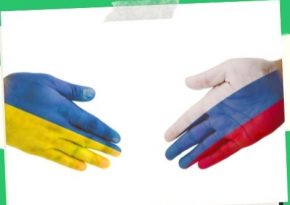
New cancer-fighting tools include AI and vaccinations.
France’s PARIS — Could the long-running battle against cancer be one in which humanity is finally winning?
Recent developments in science and medicine have given us access to a number of new tools, such as customized gene therapy, artificial intelligence testing, easy blood tests, and maybe soon, vaccines.
According to the World Health Organization, cancer caused close to 10 million deaths in 2020, or roughly one in six of all deaths worldwide.
Here are some encouraging recent advancements in the detection and treatment of the disease in advance of World Cancer Day on Saturday.
Immunotherapy
One of the most significant developments in cancer treatment over the past ten years has been the development of immunotherapy medications, which activate the immune system to locate and eliminate malignant cells.
Immunotherapy, which has fewer severe side effects than chemotherapy, has had a significant impact on the treatment of various cancer types.
Prior to 2010, there was an extremely low chance of survival for those with advanced melanoma skin cancer. However, some patients can now live for ten years or longer because to immunotherapy medications.
Immunotherapy, which has its own drawbacks, does not, however, work on all tumors.
According to Bruno Quesnel, research head at France’s National Cancer Institute, “immunotherapy is still in its infancy.”
As rationally as feasible, multiple types of immunotherapy therapies will need to be integrated, according to oncologist Pierre Saintigny of France’s Leon Berard Cancer Center.
We have advanced cancer treatment with immunotherapy, but actions must still be taken for all the people who do not benefit from it, he continued.
CAR-T treatment
An individual patient’s T-cells are extracted from their blood and modified in a lab as part of CAR-T treatment.
The immune system’s T-cells are then reintroduced back into the patient after being retrained to hunt down malignant cells.
Getting the cells from a separate, healthy person is the basis of the Allogeneic CAR-T method.
CAR-T therapy have so far largely been successful against specific types of leukemia, and the procedure is still quite costly.
synthetic intelligence
Artificial intelligence (AI)-enabled computer algorithms have been demonstrated to be more accurate than humans at detecting brain and breast cancer from regular scans.
With AI research exploding in a variety of disciplines, it is anticipated that it will play a bigger part in alternative cancer diagnosis methods.
Fabrice Andre, an oncologist at France’s Gustave Roussy Cancer Institute, stated that thanks to artificial intelligence, it will be possible to determine which patients may benefit from shorter treatments.
Patients would experience fewer side effects as a result, and the healthcare system would be under less stress.
liquid biopsy examination
Unlike traditional biopsies, which require a tissue sample, liquid biopsies can detect cancer in DNA from a quick blood test, which is simpler and less invasive.
Faster and simpler testing would aid in the early detection of cancer and its treatment before it has a chance to spread.
The new method is currently in use in the United States, but Andre noted that “there are still a lot of false positives.”
Vaccines There have long been vaccines available to protect against hepatitis B, which can cause liver cancer, and the human papillomavirus (HPV), which causes cervical cancer.
However, following decades of futile attempts to develop a cancer vaccine, optimism has grown that the mRNA technology invented for Covid-19 vaccinations might potentially result in a cancer cure.
The most promising vaccines are those that treat cancer rather than preventing it.
For its customized mRNA vaccine to treat skin cancer patients, the pharmaceutical companies Moderna and Merck released encouraging early trial results in December.
Additionally, German company BioNTech said this month that 10,000 people in Britain would participate in a trial for an individual tumor-specific mRNA cancer vaccine.
a unique blend
The head of the hospital division of France’s Curie Institute, Steven Le Gouill, expressed optimism for the future of cancer treatment.
To create a personalized plan for the patient, we should ideally “combine all these approaches and new medicines,” he said.
We have reached a turning point in our comprehension of the tumor cell, he declared.
Cancer is still a struggle, yet there has been exponential improvement.
Save/Share this story with QR CODE
Disclaimer
This article is for informational purposes only and does not constitute endorsement of any specific technologies or methodologies and financial advice or endorsement of any specific products or services.
📩 Need to get in touch?
Feel free to Email Us for comments, suggestions, reviews, or anything else.
We appreciate your reading. 😊Simple Ways To Say Thanks & Support Us:
1.) ❤️GIVE A TIP. Send a small donation thru Paypal😊❤️
Your DONATION will be used to fund and maintain NEXTGENDAY.com
Subscribers in the Philippines can make donations to mobile number 0917 906 3081, thru GCash.
3.) 🛒 BUY or SIGN UP to our AFFILIATE PARTNERS.
4.) 👍 Give this news article a THUMBS UP, and Leave a Comment (at Least Five Words).
AFFILIATE PARTNERS

World Class Nutritional Supplements - Buy Highest Quality Products, Purest Most Healthy Ingredients, Direct to your Door! Up to 90% OFF.
Join LiveGood Today - A company created to satisfy the world's most demanding leaders and entrepreneurs, with the best compensation plan today.



 Business Technology, Finance Technology & Information Technology
Business Technology, Finance Technology & Information Technology





